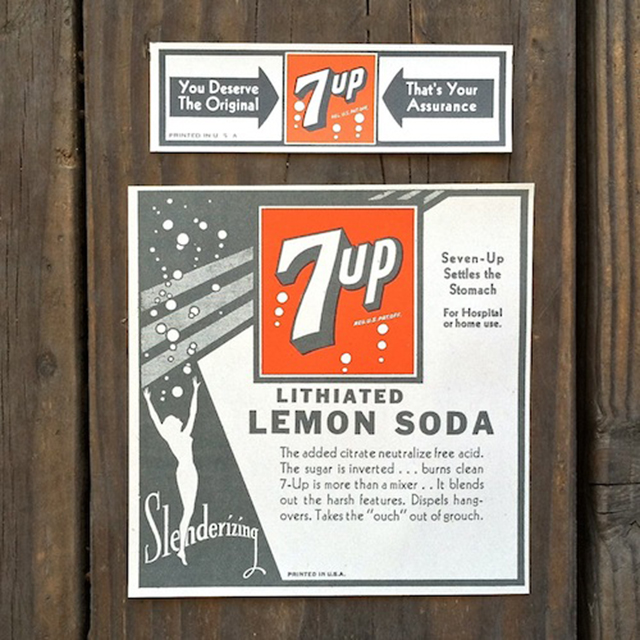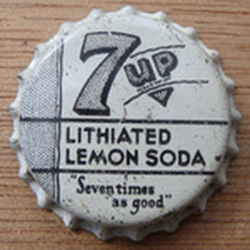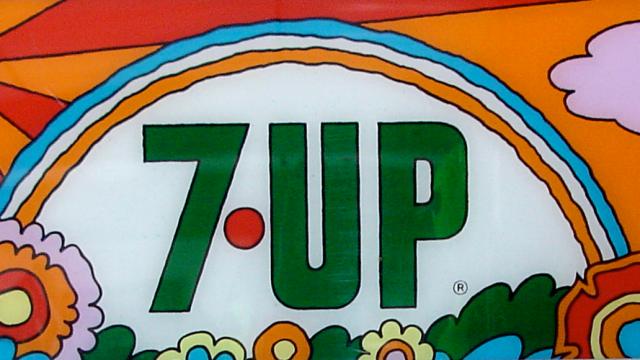Yesterday, The New York Times published a provocative opinion piece by a Cornell medical school professor that argued for adding lithium to our drinking water. It’s an interesting idea! It is not, however, a new one. In fact, one of our favourite soft drinks used to contain the mood stabilising element.
When it was initially released, the lemon-lime soda that we know as 7 Up was clumsily called Bib-Label Lithiated Lemon-Lime Soda. “Bib-Label” referred to the paper labels on the bottle, and “Lemon-Lime Soda” obviously referred to the flavour. The “Lithiated” bit, of course, refers to the lithium citrate that inventor C.L. Grigg hoped would make the drink seem more healthy. The drink was also marketed as “slenderising”, which is ironic because weight gain is now a known side effect of lithium.

At the time, many people were flocking to springs that contained lithium-rich water. The tradition is actually an ancient one, as Cornell’s Anna Fels explains in her Times column:
Lithium has been known for its curative powers for centuries, if not millenniums. Lithia Springs, Ga., for example, with its natural lithium-enriched water, appears to have been an ancient Native American sacred site. By the late 19th century Lithia Springs was a famous health destination visited by Mark Twain and Presidents Grover Cleveland, William Howard Taft, William McKinley and Theodore Roosevelt.
This era also saw the rise of a trend in medicated soft drink. Heck, even Coca-Cola once contained cocaine. A little bit of naturally occurring lithium seems tame in comparison.

The fact of the matter is that in small quantities lithium is pretty tame. While you’ll see some describe it as “mind-altering drug,” its effects usually aren’t even noticeable, even at the higher dosages now used to treat people with bi-polar disorder. Lithium does, however, have a very good track record of preventing depression and lowering suicide rates.
Grigg eventually abandoned the original name of his popular soft drink and called it 7 up. It was never completely clear what the name referred to, but it seems likely that it was the drink’s seven ingredients. That theory is supported by an early tagline: “Seven natural flavours blended into a savory, flavory drink with a real wallop.” One of those ingredients, of course, was lithium, and it’s even been theorized that the “7” refers to the atomic mass of lithium.
After the government banned its use in soft drinks, 7 Up stopping including lithium citrate in its recipe in 1948. So if you’re feeling down, don’t drink 7 Up. See a doctor. Then, when you get home, go ahead and drink a 7 Up. The soft drink is still very refreshing, even without the mood stabilizing elements.
Pictures: Flickr
